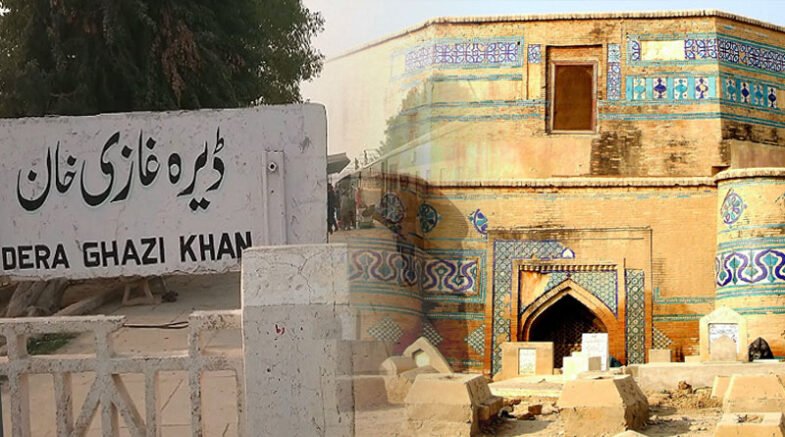The scale-up of voucher scheme is being carried out in the Dera Ghazi Khan division of Punjab by BISP, PPIF and the Population Council, with support from UNFPA.

“Poorest women in Pakistan need subsidies for travel and other out-of-pocket expenses incurred to meet service provider fees in reaching family planning services through incentivized voucher schemes,” said Faisal Kundi, Special Assistant to the Prime Minister on Poverty Alleviation and Social Safety, at the Population Council-organized ceremony to launch the scale-up of the family planning voucher scheme in Punjab.
Following a successful pilot in Rahimyar Khan, the voucher scheme was expanded to five districts in Punjab at the ceremony. The scale-up of voucher scheme is being carried out in the Dera Ghazi Khan division of Punjab by the Benazir Income Support Program (BISP), the Punjab Population Innovation Fund (PPIF), and the Population Council, with support from the United Nations Population Fund (UNFPA).
SAPM Faisal Kundi told participants at the launch that poverty alleviation is the government’s top priority and that lowering the population growth rate is critical to achieving that goal. He also stated that the evidence generated by the expansion of the voucher scheme will help the government of Pakistan implement similar programs that provide better health outcomes to the poorest women.
“To overcome inequities in access to health services, public-private partnerships, evidence generation, and technology interventions must be promoted in the health sector,” he added. He said he would recommend to the prime minister that the health and population welfare departments collaborate with social safety net programs to implement conditional cash transfer schemes that would allow poor women to access family planning services.
He stated that the government places a high value on improving people’s health and well-being by making family planning and reproductive health services more accessible. The government is developing a dynamic and comprehensive survey to identify vulnerable populations in need of immediate assistance, particularly in the aftermath of the recent flood.
Dr. Zeba Sathar, Country Director of the Population Council, stated in her welcome address that “the right to family planning services is most compromised for marginalized populations, primarily due to financial constraints.” She added that increased funding and expanding couples’ options by lowering financial barriers to contraceptive services will result in a much-needed boost in meeting both family planning and maternal health goals.
Population Council presented a compelling case for upscaling an innovative model to provide family planning services to marginalized communities. The pilot in 2019 served over 22,000 BISP beneficiaries in a short span of five months through conditional cash transfer.
The model is being replicated in the DG Khan division this year to serve disadvantaged populations. The voucher scheme will be up-scaled in five districts of Dera Ghazi Khan division to serve women and children with high unmet needs.
According to Naveed Akbar, Director General of CCT/Waseela-e-Taleem, BISP, the government is committed to increasing access to health and reproductive health services through innovative financing models. He discussed BISP’s ongoing efforts to integrate family planning services into its health and nutrition programmes.
He also suggested that voucher programmes be expanded across Pakistan to increase contraceptive use among poorer households. He praised the Population Council’s efforts in building the case for scale-up.
He stated that poorer families have larger households and that the BISP is in talks with the Population Council about assisting beneficiaries in providing family planning services through conditional cash transfers under existing payment schemes.
The launch ceremony also included a panel discussion with representatives from the federal health ministry, provincial and regional health and population welfare departments, and members of social protection units on the potential of voucher programmes to increase family planning uptake.
Panelists discussed various aspects of voucher schemes, which have been shown to be effective in increasing family planning uptake, reducing unintended pregnancies, and lowering maternal-child mortality around the world.
Panellists recommended integrating nutrition and maternal and child health services in the voucher programmes for family planning to widen their scope for disadvantaged communities. Panellists also recommended integrating family planning into national planning and development programmes and policies to reach vulnerable segments of the population.
Dr. Muhammad Arshad, CEO of the Sehat Sahulat Programme, offered assistance in utilising opportunities for counselling women on family planning who come for Maternal and Newborn Child Health (MNCH) services.
Dr. Jamil Ahmed of the United Nations Population Fund reaffirmed UNFPA’s commitment to collaborating with Pakistan’s government to ensure continuous family planning services for all segments of the population.
Through the Population Council, UNFPA assisted in the design and evaluation of the voucher scheme. Members of the Punjab assembly, provincial population welfare and health departments, international partners, health practitioners, academia, and civil society all attended the meeting.
